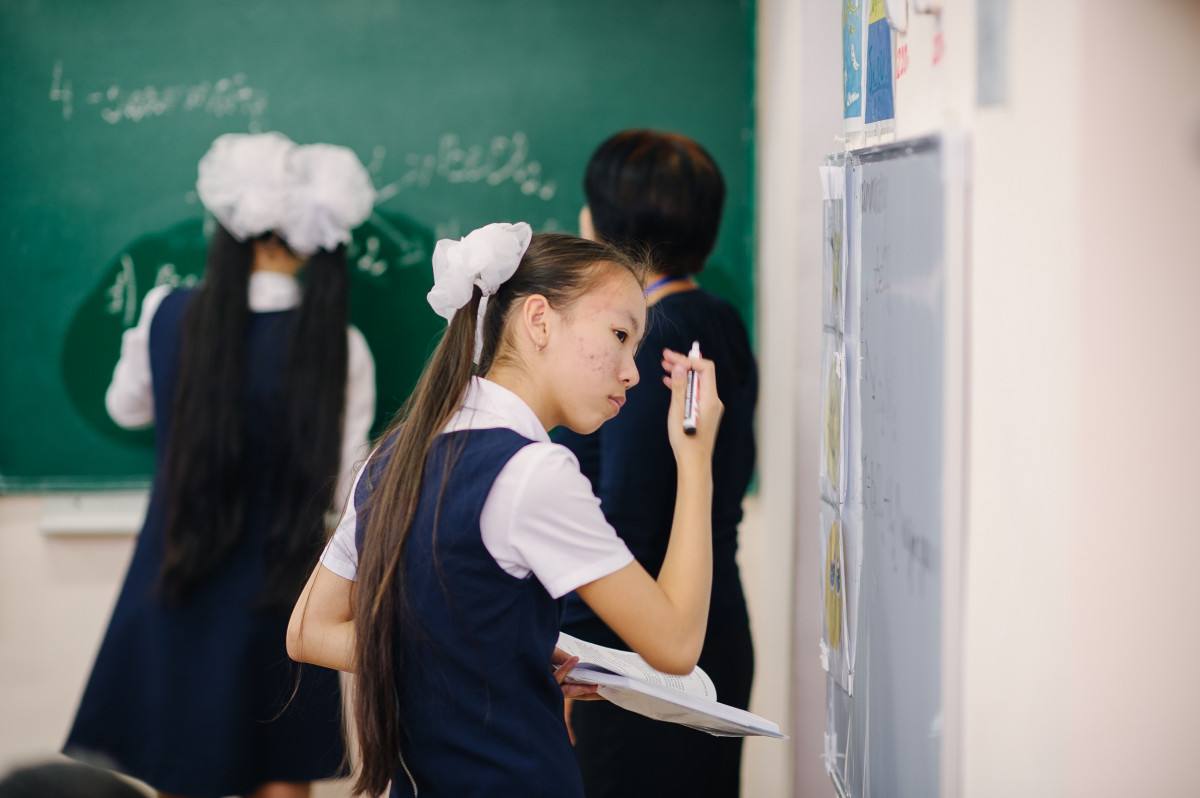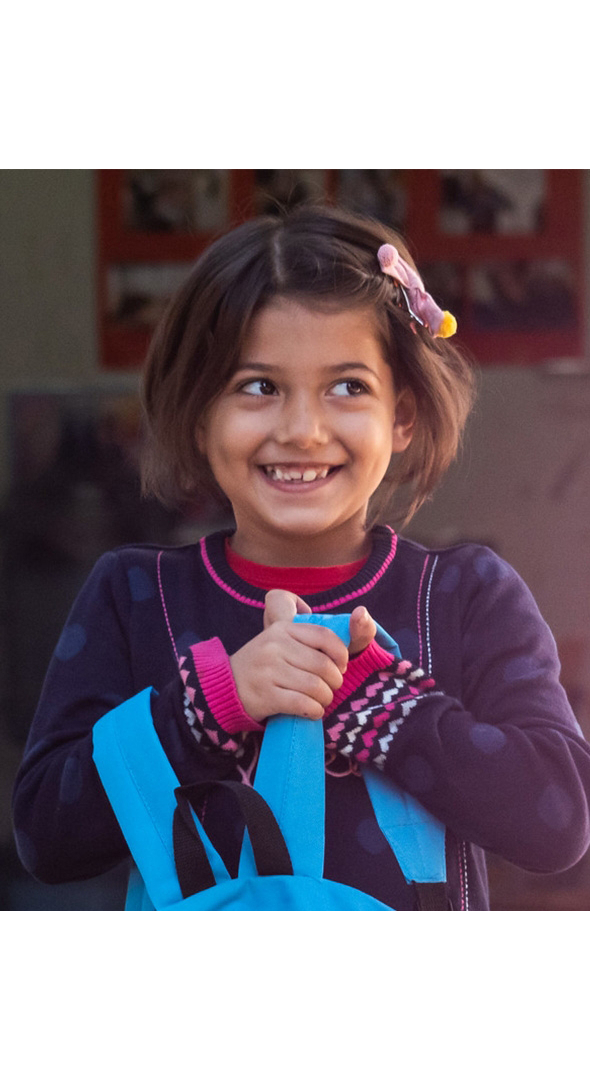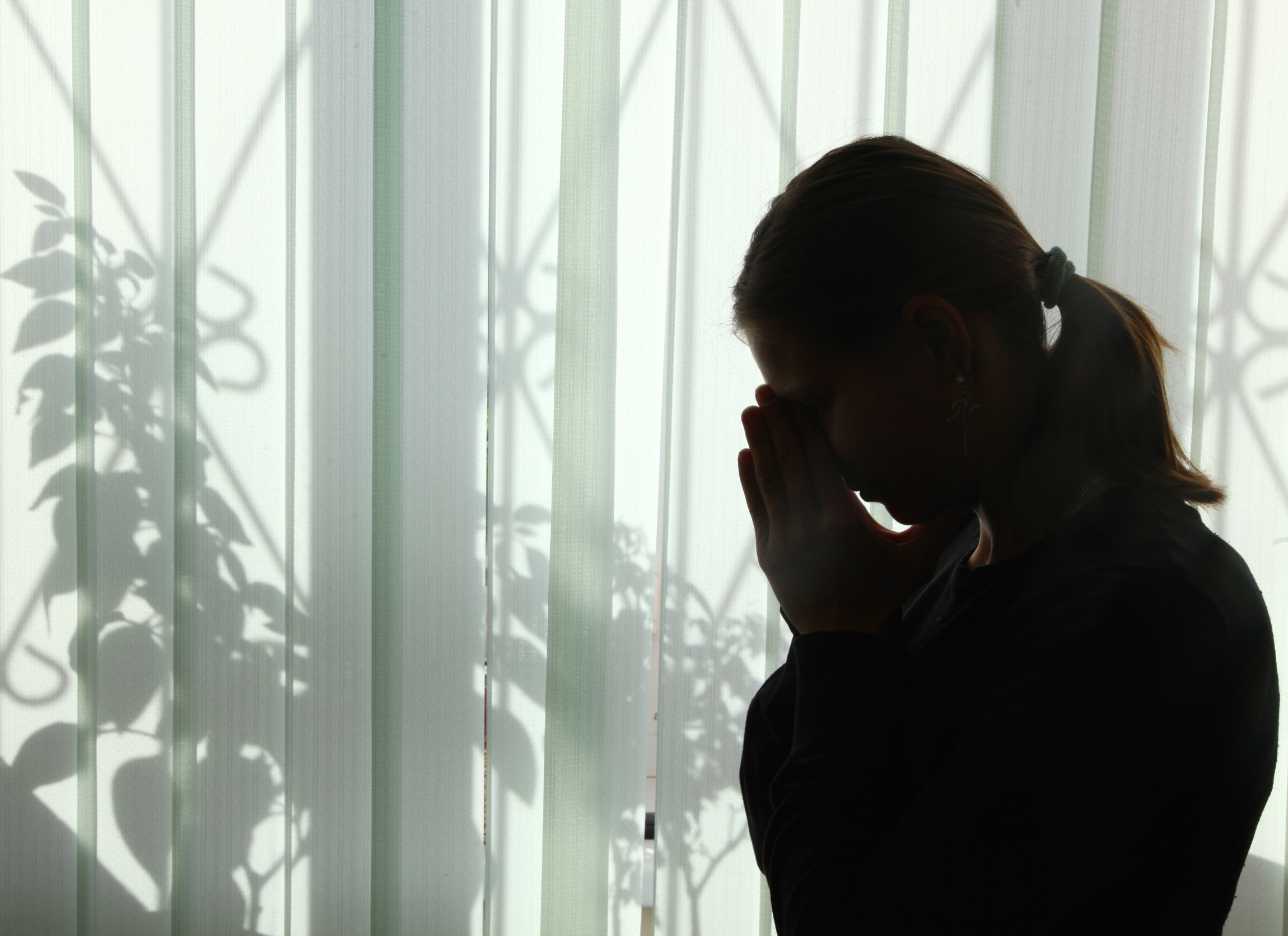How 5 teenagers overcame thoughts of suicide
2018-02-14
© UNICEF/ 2018/Kazakhstan/Giacomo Pirozzi
Mental health issues such as depression and anxiety in adolescence, particularly among girls, tend to peak at the age of 15.
Kazakhstan has one of the highest suicide rates among adolescents worldwide. This is why UNICEF has stepped up its efforts to combat adolescent suicides and improve the overall mental wellbeing of adolescents in the country.
In a large-scale pilot program UNICEF is currently raising awareness about mental health in schools, training staff to identify high-risk cases and ensuring referral of vulnerable adolescents to health specialists.
Five adolescents – out of 50,000 who participated in the program – agreed to share their stories in order to convey one simple message to young people around the world: If you are suffering, it’s OK to seek help.
Death seemed like the only way out – Zhardemuly (15)
We have a saying — “Sometimes you can hear the dishes rattle in my house.” In my case, it was more than just sometimes. The constant arguing of my parents made my life miserable. I wanted to leave my family. Death seemed like the only way out.
Since I received counseling from a psychologist at my school I feel much better. I used to think that physical wealth is the solution to everything. Today I know that the wealthiest person is the one who feels good about themselves. My counselor is also in touch with my parents. In the past, my mother hadn’t paid much attention to me. Today she’s affectionate and we’re much closer.
I don’t want to end my life anymore. I don’t want to make my parents cry. Mom carried me for nine months and gave birth to me. I now understand that our well-being is interconnected – I want to take care of and respect myself and my parents.
Today I know that all problems are solvable – Mariya (16)
Many teenagers suffer from depression. Unfortunately, I do too. At some point my problems seemed unresolvable – I constantly thought about death. The thoughts consumed me and didn’t leave me alone anymore. Then one day I picked a date for my death and marked it on my calendar.
At that time a psychologist came to class and talked about the importance of mental health . Afterwards, she approached me and suggested I come to her office. After our conversation, I felt better. I went home and crossed out the date of my death. I started to see the psychologist regularly and she suggested that I go and see a doctor – a psychiatrist.
I can’t say that today all my problems are gone or that I’m doing great. But I can feel the changes already, I know now that all problems in life are solvable. I’m making plans again. I want to be a makeup artist and travel the world.
I didn’t love life – Nazerke (15)
“Why am I living this life? It doesn’t make any sense.” These were thoughts I used to have regularly. At that time, I didn’t feel pretty. I was convinced that nobody loves me, that nobody needs me. I had very low self-esteem. I didn’t love life.
It was only after I talked to a school psychologist that I started to understand the importance of self-care. Instead of hiding my feelings, I started to share them with friends, family and mental health professionals. Everyone was so supportive. I started to realize that I’m loved, that I’m not worth less than anyone.
Today I have more friends. I’m able to love and help others. I understand now that life is a precious gift and that I’ll only live once. I decided that I want to become a doctor so I can support and help others. I’ll have to work hard to get there, but today I’m confident enough to know that I can absolutely do it.

© UNICEF/ 2018/Kazakhstan/Andrey Kim
Suicide ranks among the leading causes of death for older adolescent girls and boys, while depressive disorders, anxiety, behavioural problems and self-harm are among the greatest contributors to young people’s burden of disease.
I stumbled, but I got up again – Zhanerke, (15)
Life is like a river – some flow easily , but others keep hitting rocks. That’s what happened to me. I felt treated unfairly at home. I hated everyone and felt like no one understood me. I felt lonely. I started to spend a lot of time in dark rooms. I wore black clothes and listened to loud music. My thoughts got very dark – I wanted to go to sleep and never wake up again.
One day a psychologist came to our class and she gave us a questionnaire to fill out. I didn’t care much, but it helped me getting rid of my negative thoughts. Later I was invited to see the psychologist. Knowing that our conversation was confidential helped me to open up. We talked a lot and, slowly but surely, I started to see life from a different perspective.
Today I can see that, as black and white go together, good and bad, sorrow and joy are inseparable friends. I stumbled but I got up again. As a poet once said, “Everyone has the right to rise after his fall.”
I want to tell you that you’re not alone – Aruzhan (18)
I was born with an extra finger. One day I played with other children who started to tease and mock me. It was then that I understood that I was different. From that moment, I started to withdraw. I became insecure and bad thoughts consumed my mind. I started to think that, like my finger, I might be “extra”, something that’s not supposed to be in this world. I wanted to commit suicide.
At some point, I got the chance to see a psychologist at my school. We talked about life and she asked me why I wanted to commit suicide. I started to cry and told her my story. She told me that my finger was not a reason to end my life, that there were medical solutions. She spoke with my mother and a few days later the three of us went to hospital to have my extra finger removed.
When the bandages came off I felt like I was coming out of a fog – I felt elevated, like I had grown wings. I tell this story because there must be other young people out there who are struggling with themselves. I want to tell you that you’re not alone and that there is a way out.










